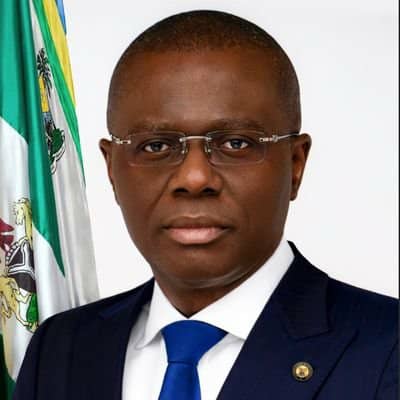The reckless resort to strikes, By Dan Agbese
It would be foolish to contest the right of labour leaders to take whatever steps they deem necessary to promote and protect their members. That right, almost sacred, inheres in the concept of trade unionism. The resort to partial or full strike actions by the unions in full exercise of that right is a familiar weapon of war with employers and the government. The government is the enemy. It is in a permanent contest of will with labour unions.
But we too have certain rights. They include our right as non-unionised citizens to interrogate the reckless use of strike actions as weapons of choice by labour leaders. This current strike action qualifies as the cynical use of a strike action to bend society. It may have a reason, but it is entirely lacking in rhythm. The brutalisation of the NLC president, Comrade Joe Ajaero in Owerri, Imo State, on November 1 by the police with the help of hired thugs at the alleged instance of the state governor, Hope Uzodinma, was stupid and primitive. It should not have happened.
But we know that such things are not rarities in our country, given the assumed right of the African big man to often assert his importance in a manner calculated to let the poor know who he is and what he is. They happen to fellow Nigerians daily in almost every part of this country. Fellow Nigerians are brutalised, some are even killed by the police and other security agents who are paid with the people’s tax to protect the people but choose to serve the interest of the big man at the expense of the small people. We hardly hear about such cases because they concern nobodies and the sons and daughters of nobodies. Ajaero’s case made it to the news and generated anger among labour unions because of who and what he is.
Why did labour take out their anger against the entire country? What is their demand and why should the entire country be made to suffer because labour leaders felt that the brutalisation of their president amounts to the ill treatment of labour? The rest of the country was not complicit in what happened in Owerri. This is just not right. Their disruption of economic and other businesses in these parlous times because their chief was treated with disrespect amounts to pushing the boundary of labour rights. Our labour leaders need no one to tell them that this country is struggling through a wrenching period of survival. Its current challenges are horrendous with the worst cases being those of a run-down national economy and security. It is hardly the right time for labour to disrupt the right of fellow Nigerians who are mightily struggling to survive these difficult times.
Labour unions do not exist for their members only. They also, more importantly, exist to serve the interest of the nation, especially at critical times like these. Strike actions, no matter how brief, cause problems that do not end with the end of the strike actions. It is a point I have repeatedly argued here and elsewhere. No one can accuse our labour leaders of not fighting for the interests of their members and by extension our collective interests as workers in public and the private sectors.
A succession of our labour leaders going to back Labour Leader Number One, Chief Michael Imuodu, have bravely fought for the welfare of Nigerian workers. Their weapon has always been a strike action. Sometimes they won and sometimes it was victory less than pyrrhic.
The minimum wage palaver remains unresolved. In 2015 labour pressed for a new minimum wage of N80,000 per month. They made this unrealistic demand even when they knew that most of the state governments could not pay even the N18,000 minimum wage that became part of the labour law since Obasanjo’s time on the throne. As at the time 27 of the 36 states could not pay their workers and pensioners. Did it make sense for labour to ask for an upward review?
I find it interesting that labour leaders shy away from taking up fights that could make their members feel protected and their interests served. They were not unaware of the pathetic case of civil servants and pensioners reduced to penury by state governors in the immediate past administration. I cannot remember labour picketing the governors of some these states to force them to honour their contractual agreements with their civil servants. Pensioners, men and women who gave of their best to the states, are suffering because they were and are denied their entitlements. It is the fight the labour leaders ought to take on and end the criminal treatment of civil servants and pensioners by state governors.
Governors are obliged by the constitution to be accountable to the people. This means they must show how the people’s money is spent in the interests of the people. Accountability is observed in the breach. Labour has a duty to enforce this constitutional compliance by playing the watch dog role to stop the state governors from helping themselves so freely to the treasuries entrusted to them. Labour should also think of stopping state governors who failed the people from being elected to the senate.
Our labour leaders need to think of repositioning their unions to make them relevant in all aspects of our national aspirations. There is much they can accomplish in the interests of their members without paralysing the country with strike actions that are merely resorted to to show their power. They cheapen the relevance of trade unionism with their easy and reckless resort to strike actions. They should think of making strike actions the weapon of last resort not the weapon of first resort. To use a strike action in a fit of anger is wrong because it serves no higher ends in the interest of the people.
The current strike action lasted for all of two days. Perhaps it provided a salve on Ajaero’s injuries he sustained in his brutalisation. Is that a good enough reason to paralyse the country for two days? What did labour achieve from the two-day strike? It achieved nothing beyond the flexing of muscles by the labour leaders. We did not need that. We face great challenges as a people and as a nation that the government at national and sub-national levels cannot solve without the active participation of labour at all levels. If those who attacked the NLC president have been arrested, then labour must ensure they duly pay for their crimes against their president.
More importantly, labour should help to drive best practices in our economic management. We are where we are because our economy has been poorly managed. It is burdened with loans amounting to more than the N77 trillion Buhari left for Tinubu. But it is possible to get the nation out of this hole. It is within the competence of labour leaders and their members to help drive the recovery of our national economy. A healthy national economy is the answer to most of our national problems. It will enable workers to spend less on food, transportation, light and water. And they could put something aside for the inevitable rainy day. The good times may not roll but happier times will.




